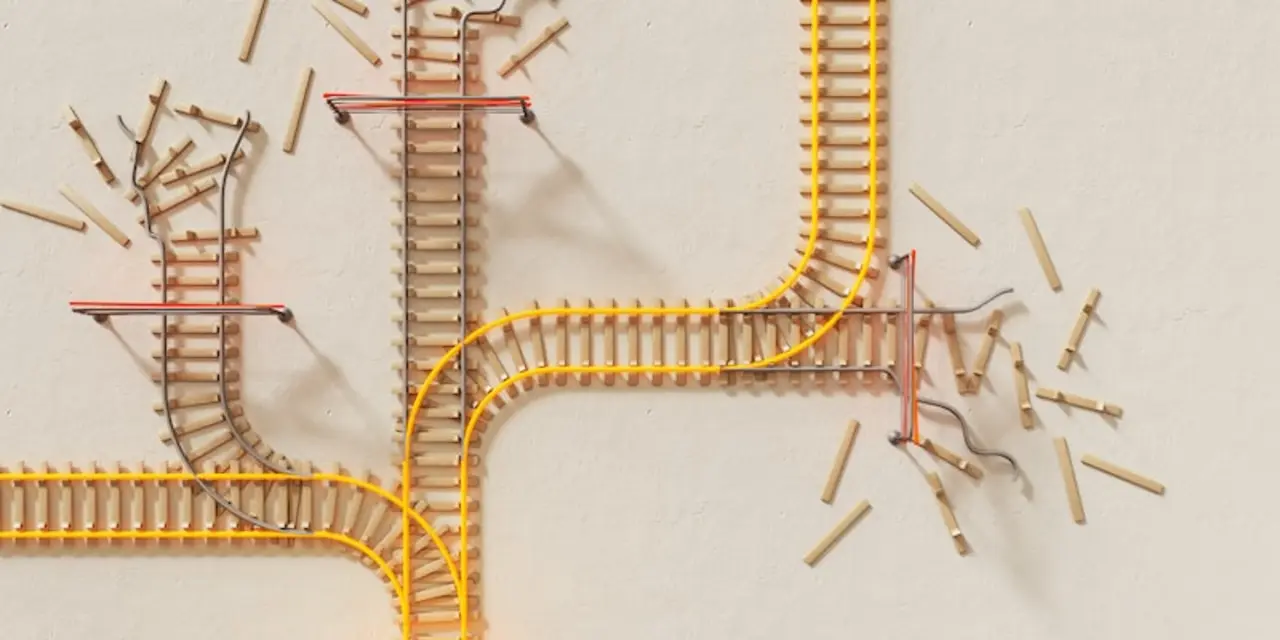What is AI (artificial intelligence) in deep?
-
Mar, 7 2023
-
0 Comments

Exploring the Potential of AI: A Deep Dive Into the World of Artificial Intelligence
Artificial Intelligence (AI) is an emerging technology that promises to revolutionize the way humans interact with technology. AI is a branch of computer science that focuses on creating intelligent machines that are capable of performing tasks that normally require human intelligence. AI-powered systems are able to process large amounts of data, recognize patterns, and make decisions without direct human intervention. AI applications are being used in many industries, including healthcare, finance, transportation, and manufacturing.
The potential of AI is vast, and it has the potential to significantly improve the quality of life for people around the world. AI-powered systems can help us to better understand the world around us and make more informed decisions. AI can also be used to automate tedious tasks, freeing up more time for creativity and innovation.
AI can be used to generate insights and predictions that can be used to improve products and services. AI-based systems can analyze vast amounts of data and uncover hidden insights that can inform decisions in areas such as marketing, finance, and healthcare. AI can also be used to automate mundane tasks, allowing people to focus on more meaningful work.
AI-powered systems can also enable new forms of communication and collaboration. By leveraging natural language processing and machine learning, AI-enabled systems can help humans to interact with machines in a more natural and intuitive way. AI-powered systems can also help people to collaborate more effectively, allowing them to quickly and easily exchange ideas and collaborate on projects.
The possibilities for AI are endless, and it promises to revolutionize the way we interact with technology. As AI technologies continue to develop, the potential for AI applications will only continue to increase. We are just beginning to scratch the surface of AI’s potential, and it is an exciting time to explore the possibilities of AI.
Unlocking the Mysteries of AI: Uncovering the Science Behind Artificial Intelligence
Artificial intelligence (AI) is a fascinating and complex field of science that is constantly evolving. AI is a form of computer science that focuses on the development of machines that can think, learn, and act in much the same way as humans do. AI is used in a variety of different contexts, from robotics to autonomous vehicles to computer vision and more. While AI has been around since the 1950s, it has only really taken off in recent years, with advancements in technology and increased understanding of the science behind it.
One of the most important aspects of AI is its ability to learn. Using algorithms and data, AI can identify patterns, learn from past experiences, and make decisions accordingly. This process, known as machine learning, is what allows AI to become increasingly intelligent over time. AI can also use techniques such as natural language processing and computer vision to interpret and interact with the environment.
In addition to machine learning, AI also relies on other forms of computer science. For example, robotics involves the use of robots to perform tasks. Autonomous vehicles use AI to drive themselves and make decisions about their environment. Computer vision involves using AI to interpret images and detect objects in the environment. AI can also be used in natural language processing, which is the ability to understand and process human speech.
AI is a complex and rapidly evolving field of science. As technology continues to advance, AI has become increasingly capable of performing complex tasks and understanding the world around us. The possibilities of AI are almost limitless, and the field continues to provide opportunities for new and exciting applications.
Artificial Intelligence (AI) is one of the most exciting, rapidly evolving fields in technology today. From self-driving cars to voice-controlled digital assistants, AI is quickly becoming an integral part of our lives. But what is AI really? How does it work? And, most importantly, how can we use it in the real world?
At its core, AI is an umbrella term for a variety of computer systems that are capable of performing tasks that normally require human intelligence. AI systems can be trained to think and act like humans, using algorithms and machine learning techniques to recognize patterns, make decisions, and solve problems. AI is already being used in a variety of applications, from autonomous vehicles to facial recognition systems to medical diagnosis tools.
One of the most exciting applications of AI is in robotics. AI-powered robots are increasingly being used in manufacturing, healthcare, hospitality, and other industries. These robots can be programmed to perform a variety of tasks, from simple assembly-line work to complex medical procedures. AI-powered robots can even be used to perform tasks that are too dangerous or difficult for humans, such as search and rescue operations in hazardous environments.
AI is also being used in the finance and banking industry. AI-driven systems are used to detect fraud and money laundering, as well as to automate complex financial transactions. AI-based systems can also be used to generate insights from large amounts of data, allowing financial institutions to provide more personalized services and better manage risk.
Finally, AI is being used in a variety of consumer applications. AI-powered virtual assistants are becoming increasingly popular, allowing users to get help with tasks such as scheduling appointments, finding information, and ordering products. AI is also being used to power smart home devices, such as lights, thermostats, and security systems. AI-based applications are also being used to improve online experiences, from personalized product recommendations to automated chatbot conversations.
As the technology continues to evolve, AI will become even more deeply embedded in our lives. From healthcare to finance to consumer products, AI is already making a huge impact in the real world, and will continue to do so for many years to come.